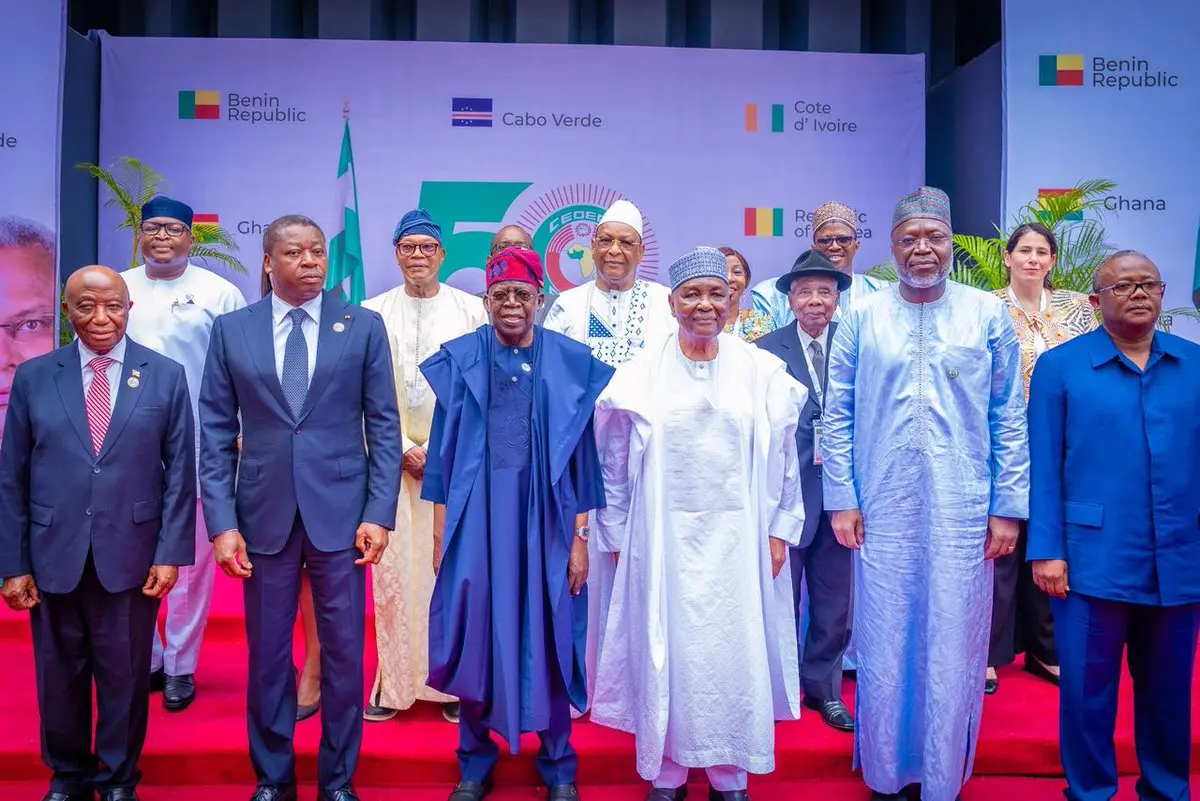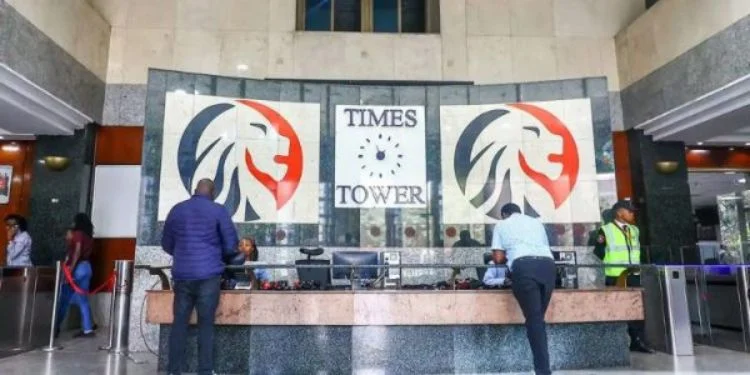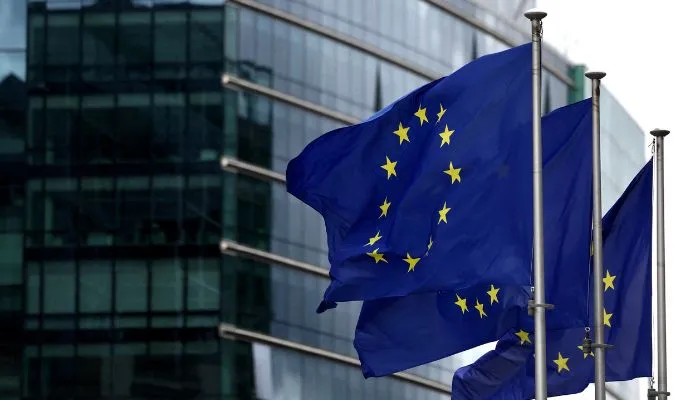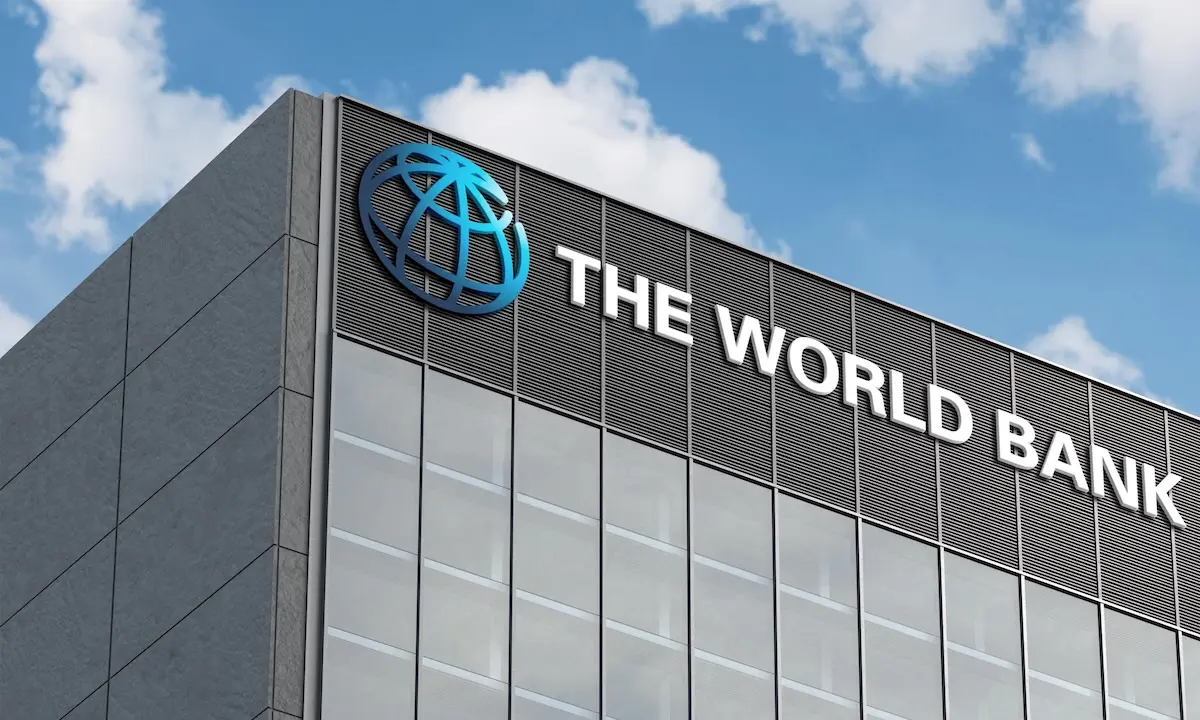The Economic Community of West African States (ECOWAS) is embarking on a decisive journey to redefine its economic future, with regional leaders reaffirming a steadfast commitment to reshaping economic diplomacy and forging a truly integrated and prosperous West Africa. At the heart of this renewed resolve is a clear recognition that the region’s long-standing narrative of missed opportunities must give way to concrete action and strategic partnerships.
During a pivotal dinner for delegates attending the inaugural West African Economic Summit, held at the New State House Banquet Hall in Abuja, President Bola Tinubu of Nigeria, represented by Vice President Kashim Shettima, articulated this bold vision. His message resonated with a sense of urgency and a call for collective responsibility, emphasizing that the foundation for a thriving West Africa is already being laid through critical initiatives such as the ECOWAS Trade Liberalisation Scheme, the West African Power Pool, and the ambitious Abidjan–Lagos Corridor highway project.
“While Asia trades 60% within its borders and Europe 70%, Africa remains at a mere 15%. West Africa, regrettably, is even lower,” President Tinubu observed, highlighting the stark reality of the region’s current intra-trade levels. He continued, “Through mechanisms such as the Trade Liberalisation Scheme, the West African Power Pool, and the Abidjan–Lagos Corridor, we have laid the foundation. Now, we must build.” This statement serves as a powerful testament to the bloc’s determination to accelerate progress towards deeper economic integration.
A Vision for an Integrated West Africa: From Aspiration to Action
The inaugural West African Economic Summit itself marks a significant declaration of intent by President Tinubu’s administration to “reimagine economic diplomacy” across the region. It brought together a diverse assembly of leaders, policymakers, business stakeholders, and visionary voices united by a common purpose: to chart a path forward for West Africa. The summit, characterized by its “deal room” and a formal declaration, signifies a crucial transition “from aspiration to action and from talk to task.”
This emphasis on tangible outcomes underscores a fundamental shift in approach. For too long, regional integration efforts have been plagued by grand pronouncements without corresponding implementation. President Tinubu’s message is clear: the destiny of West Africa hinges not solely on governmental decrees but, more critically, on the ability to position the private sector at the very core of regional planning. This recognition of the private sector as an indispensable engine of growth is a vital step towards unlocking the region’s full economic potential.
The summit, therefore, served as a dynamic platform for both business-to-government and business-to-business transactions, fostering a fertile ground for investment, innovation, and economic partnerships. It aimed to dismantle the structural impediments that have historically hindered progress, ensuring that “commerce must not be hindered by Customs delays, nor innovation stifled by incoherent policies.” This holistic approach acknowledges that economic prosperity requires not only ambitious projects but also an enabling environment that facilitates ease of doing business and seamless cross-border trade.
Pillars of Integration: Key Initiatives Driving West Africa’s Economic Future
ECOWAS, founded in 1975, has consistently pursued a mission of promoting economic integration across its fifteen member states. This renewed commitment under President Tinubu’s leadership is giving fresh impetus to several flagship initiatives, each vital for building a cohesive and prosperous West Africa.
The ECOWAS Trade Liberalisation Scheme (ETLS): Fostering Intra-Regional Trade
The ECOWAS Trade Liberalisation Scheme (ETLS) is arguably the most crucial operational tool for promoting West Africa as a genuine Free Trade Area. Established in 1979 and later revised in 1990 to include industrial products, the ETLS aims to abolish customs duties and non-tariff barriers on goods originating from member states. Its core principle is to allow for the free movement of goods produced within the region, with the exception of certain sensitive or strategic items.
Despite being foundational, the ETLS has faced challenges. Progress has been slower than anticipated due to factors such as weak infrastructure, persistent non-tariff barriers (like complex customs procedures, numerous checkpoints, and informal charges), and limited production capacity in some member states. The scheme relies on strict rules of origin criteria to ensure that only goods genuinely produced within the ECOWAS region, or those with significant value addition, qualify for duty-free treatment. The complexities of obtaining and verifying certificates of origin and the prevalence of non-tariff barriers continue to be significant hurdles.
However, the ETLS remains a key priority for ECOWAS. Its potential to stimulate economic growth, create a larger market for goods and services, promote competition, and attract investment is immense. By streamlining trade processes and reducing costs, the ETLS can help West African businesses achieve economies of scale and better compete regionally and globally. This renewed focus on its effective implementation suggests a strong desire to overcome historical bottlenecks and unlock its full potential.
The West African Power Pool (WAPP): Lighting Up the Region
Reliable and affordable energy is the lifeblood of economic development. The West African Power Pool (WAPP) is a specialized agency of ECOWAS, bringing together public and private power entities from 14 of the 15 member states. Its mission is to establish a regional electricity market, ensuring constant, reliable, and affordable energy supply across West Africa.
The WAPP aims to achieve this through:
- Interconnection of National Grids: Linking the electricity networks of member states to facilitate power exchange.
- Development of Regional Power Plants: Collaborative investment in large-scale generation projects that can serve multiple countries.
- Harmonization of Standards: Developing common technical and operational standards for pooled electric systems.
- Facilitating Cross-Border Trade: Improving the efficiency and reliability of electricity flows across national borders.
Despite ambitious goals, WAPP faces significant challenges, including a substantial energy deficit across the region, aging infrastructure, limited investment in new generation capacity, and difficulties in harmonizing regulatory frameworks across diverse national contexts. Many West African countries still suffer from chronic power shortages, which stifle industrial growth, limit access to essential services, and deter foreign investment.
However, the progress made by WAPP – including increased cross-border energy trade and the development of major transmission lines – demonstrates its critical role in the regional integration agenda. A successful WAPP would not only provide a stable energy supply but also reduce energy costs, enhance energy security, and foster industrialization throughout West Africa. It’s a foundational element for a truly integrated economic bloc.
The Abidjan-Lagos Corridor: Paving the Way for Trade
The Abidjan–Lagos Corridor is a planned 1,028-kilometer, six-lane dual carriage highway designed to connect five major West African countries: Côte d’Ivoire, Ghana, Togo, Benin, and Nigeria. This flagship infrastructure project is more than just a road; it is envisioned as a vital economic and industrial hub, facilitating the transit of both passengers and goods along one of Africa’s busiest and fastest-growing urban corridors.
The region along the Atlantic coastline that the highway traverses is projected to reach a population of 175 million people by 2050 and currently handles approximately 75% of the volume of West African trade. The project aims to:
- Ease Transit: Significantly reduce travel times and logistical costs for people and goods.
- Integrate Border Crossings: Streamline customs and immigration procedures at the more than eight border crossings along the route.
- Boost Trade: Promote seamless intra-regional trade and facilitate access to ports.
- Stimulate Economic Activity: Encourage the growth of major economic clusters and improve links between large urban centers, secondary cities, and rural areas.
Part of the broader Programme for Infrastructure Development in Africa (PIDA), the Abidjan-Lagos Corridor has garnered significant funding and support from partners like the African Development Bank (AfDB) and the African Investment Forum. Construction is anticipated to commence in 2026, with a target completion date of 2030, generating up to 70,000 direct and indirect jobs during the construction phase. Its successful completion will be a tangible symbol of West Africa’s commitment to overcoming physical barriers to integration.
The Role of Political Leadership and Private Sector Dynamism
President Tinubu’s address unequivocally highlighted the “crucial role of political leadership across Africa,” asserting that leaders are not gathered “to complain but to facilitate solutions.” This proactive stance is essential for addressing the systemic challenges that have long impeded West Africa’s economic progress. It signals a shift from rhetoric to practical policy implementation, focusing on removing the bottlenecks that stifle commerce and innovation.
Dismantling “Customs delays” and combating “incoherent policies” are not merely administrative tasks; they are fundamental to creating an environment where the private sector can flourish. Cumbersome bureaucratic processes, inconsistent regulations, and corruption at borders act as significant non-tariff barriers, making cross-border trade expensive, time-consuming, and unpredictable. By committing to tackle these issues head-on, ECOWAS leaders aim to foster a more transparent, predictable, and efficient trading environment.
The deliberate inclusion of a “deal room” within the West African Economic Summit further emphasizes the commitment to action. This direct engagement between governments and potential investors, both local and international, creates immediate opportunities for tangible agreements and partnerships. It recognizes that government policies alone are insufficient; sustained economic growth requires substantial private sector investment, innovation, and job creation. By involving the private sector at the center of regional planning, ECOWAS aims to leverage entrepreneurial drive and market forces to achieve its development goals.
Nigeria’s Steadfast Commitment to West African Progress
As the largest economy and most populous nation in West Africa, Nigeria has always played a pivotal role in the fortunes of ECOWAS. President Tinubu’s leadership of the regional bloc, though now concluding his tenure as Chairman, has been marked by a clear dedication to fostering peace and progress. The President of the ECOWAS Commission, Dr. Omar Alieu Touray, publicly applauded President Tinubu’s leadership, acknowledging Nigeria’s unwavering support for ECOWAS and its various institutions.
Nigeria’s commitment extends beyond financial contributions; it involves active diplomatic engagement, leadership in regional security initiatives, and a consistent push for economic reforms. This dedication reflects the country’s resolve to build a region that truly works for all, transcending socio-political divides and ethnic affiliations. Nigeria’s sheer economic weight and human capital are indispensable to achieving the ambitious goals of regional integration.
The recent 67th Summit of the ECOWAS Authority of Heads of State and Government saw President Tinubu formally step down as Chairman, handing over to President Julius Maada Bio of Sierra Leone. However, Nigeria’s influence within the 15-nation bloc remains profound, and its continued advocacy for economic integration and stability will be crucial. The pact signed between Nigeria and Benin Republic during the inaugural West Africa Economic Summit, aimed at deepening bilateral integration, is envisioned as a model for broader collaboration within ECOWAS, demonstrating concrete steps even as leadership transitions.
Harnessing the Demographic Dividend: Empowering West Africa’s Youth
Mrs. Bianca Ojukwu, Nigeria’s Minister of State for Foreign Affairs, underscored another critical dimension of West Africa’s future: the potential of its vast youth population. She described the meeting of regional leaders and economic stakeholders as a “renewed pledge to a more prosperous West African sub-region, focused on dismantling the structural impediments to progress.”
A key focus outlined by Mrs. Ojukwu is the ongoing collaborative efforts to harness the potential and energy of the youth, preparing them to drive forward regional development and effectively serve the interests of the people. West Africa possesses a rapidly growing, youthful population, representing a significant demographic dividend if properly educated, skilled, and empowered.
Initiatives in this area include:
- Skills Development and Vocational Training: Equipping young people with marketable skills that meet the demands of emerging industries.
- Entrepreneurship Promotion: Fostering a culture of innovation and providing support for young entrepreneurs to start and grow businesses.
- Education and Scholarships: Improving access to quality education and offering scholarships to underprivileged students to build human capital.
- Youth Engagement in Policy: Ensuring young people have a voice in policy advocacy and decision-making processes, for instance, through platforms like the ECOWAS Youth Parliament.
Organisations like the ECOWAS Youth and Sport Development Centre actively work towards these goals, deploying volunteers and supporting initiatives that promote youth engagement in regional integration. By investing in its youth, West Africa can transform a potential demographic challenge into a powerful engine for sustainable development, innovation, and long-term prosperity.
Navigating the Road Ahead: Challenges and Opportunities for Regional Integration
While the renewed commitment and strategic initiatives are commendable, the path to full economic integration in West Africa is fraught with challenges.
Overcoming Low Intra-African Trade
The statistic cited by President Tinubu – Africa trading at a mere 15% within its borders, with West Africa even lower – starkly illustrates the scale of the challenge. This figure stands in sharp contrast to intra-European Union trade at around 70% and intra-Asian trade at around 60%. The reasons for this disparity are multi-faceted:
- Non-Tariff Barriers (NTBs): Beyond formal tariffs, a myriad of non-tariff barriers, including bureaucratic hurdles, differing product standards, corruption at borders, and inadequate customs procedures, significantly impede cross-border trade.
- Inadequate Infrastructure: Poor road networks, limited rail connectivity, inefficient port operations, and unreliable energy supply increase the cost of doing business and transporting goods across the region.
- Limited Product Complementarity: Historically, many African economies have exported similar raw materials, leading to limited demand for each other’s products. Diversification and industrialization are crucial to create more trade opportunities.
- Multiple Regional Economic Communities (RECs): The existence of overlapping memberships and mandates among various RECs in Africa can lead to confusion, duplication of efforts, and inconsistent policies, complicating trade.
- Security Challenges: Persistent issues of terrorism, insurgency, and political instability in certain parts of the region disrupt trade routes, deter investment, and force diversion of resources to security, as highlighted by recent withdrawals of Mali, Burkina Faso, and Niger from ECOWAS. These political and security issues pose a significant threat to the very fabric of regional integration.
The Imperative of Policy Harmonization
Effective regional integration demands a high degree of policy harmonization among member states. This includes aligning customs procedures, tax regimes, regulatory frameworks, and even macroeconomic policies. Inconsistent policies create uncertainty for businesses and impede the free flow of goods, services, and capital. ECOWAS’s commitment to this harmonization is crucial, but its implementation requires strong political will and technical capacity building across all member states.
Attracting and Sustaining Private Sector Investment
The emphasis on the private sector at the West African Economic Summit is a recognition of its indispensable role. However, attracting substantial private investment requires more than just political will. It necessitates:
- Stable Regulatory Environments: Predictable and consistent legal and regulatory frameworks that protect investments and ensure fair competition.
- Access to Finance: Developing robust financial markets and innovative financing mechanisms to support businesses, especially SMEs.
- Reduced Bureaucracy: Streamlining business registration, licensing, and operational procedures to lower transaction costs.
- Improved Governance: Tackling corruption and enhancing transparency to build investor confidence.
The Abidjan-Lagos Corridor project, for example, envisions significant public-private partnerships, illustrating the need for collaborative financing models.
Addressing Security and Political Instability
While the primary focus of the summit was economic, the shadow of political instability and security challenges in West Africa cannot be ignored. Recent military coups and the withdrawal of three key Sahelian states from ECOWAS pose serious threats to the bloc’s unity and integration agenda. Economic prosperity is intrinsically linked to peace and stability. The ongoing efforts by ECOWAS leaders to restore democratic order and address security threats, though challenging, are foundational to creating an environment conducive to economic growth and regional trade.
Conclusion: Building a West Africa That Works for All
The West African Economic Summit in Abuja has unequivocally restated ECOWAS’s commitment to a bold new era of economic diplomacy and regional integration. Under President Tinubu’s leadership, the bloc is not merely articulating aspirations but is actively pursuing concrete, interconnected initiatives designed to transform the region’s economic fortunes. From liberalizing trade and building a regional power market to constructing vital transport corridors and empowering its youth, ECOWAS is laying the groundwork for a more prosperous, self-reliant, and interconnected West Africa.
The journey ahead is undoubtedly complex, fraught with historical challenges and emerging threats. However, the renewed emphasis on private sector centrality, policy harmonization, and a proactive approach to dismantling barriers signals a mature and pragmatic vision. If ECOWAS member states can sustain this momentum, overcome the hurdles of implementation, and ensure that the benefits of integration are inclusive and widely shared, they can indeed realize the dream of a “West Africa that works for all” – a dynamic and competitive economic force on the global stage.
Ready to take your career to the next level? Join our dynamic courses: ACCA, HESI A2, ATI TEAS 7 , HESI EXIT , NCLEX – RN and NCLEX – PN, Financial Literacy!🌟 Dive into a world of opportunities and empower yourself for success. Explore more at Serrari Ed and start your exciting journey today! ✨
Photo source: Google
By: Montel Kamau
Serrari Financial Analyst
23rd June, 2025
Article, Financial and News Disclaimer
The Value of a Financial Advisor
While this article offers valuable insights, it is essential to recognize that personal finance can be highly complex and unique to each individual. A financial advisor provides professional expertise and personalized guidance to help you make well-informed decisions tailored to your specific circumstances and goals.
Beyond offering knowledge, a financial advisor serves as a trusted partner to help you stay disciplined, avoid common pitfalls, and remain focused on your long-term objectives. Their perspective and experience can complement your own efforts, enhancing your financial well-being and ensuring a more confident approach to managing your finances.
Disclaimer: This article is for informational purposes only and does not constitute financial advice. Readers are encouraged to consult a licensed financial advisor to obtain guidance specific to their financial situation.
Article and News Disclaimer
The information provided on www.serrarigroup.com is for general informational purposes only. While we strive to keep the information up to date and accurate, we make no representations or warranties of any kind, express or implied, about the completeness, accuracy, reliability, suitability, or availability with respect to the website or the information, products, services, or related graphics contained on the website for any purpose. Any reliance you place on such information is therefore strictly at your own risk.
www.serrarigroup.com is not responsible for any errors or omissions, or for the results obtained from the use of this information. All information on the website is provided on an as-is basis, with no guarantee of completeness, accuracy, timeliness, or of the results obtained from the use of this information, and without warranty of any kind, express or implied, including but not limited to warranties of performance, merchantability, and fitness for a particular purpose.
In no event will www.serrarigroup.com be liable to you or anyone else for any decision made or action taken in reliance on the information provided on the website or for any consequential, special, or similar damages, even if advised of the possibility of such damages.
The articles, news, and information presented on www.serrarigroup.com reflect the opinions of the respective authors and contributors and do not necessarily represent the views of the website or its management. Any views or opinions expressed are solely those of the individual authors and do not represent the website's views or opinions as a whole.
The content on www.serrarigroup.com may include links to external websites, which are provided for convenience and informational purposes only. We have no control over the nature, content, and availability of those sites. The inclusion of any links does not necessarily imply a recommendation or endorsement of the views expressed within them.
Every effort is made to keep the website up and running smoothly. However, www.serrarigroup.com takes no responsibility for, and will not be liable for, the website being temporarily unavailable due to technical issues beyond our control.
Please note that laws, regulations, and information can change rapidly, and we advise you to conduct further research and seek professional advice when necessary.
By using www.serrarigroup.com, you agree to this disclaimer and its terms. If you do not agree with this disclaimer, please do not use the website.
www.serrarigroup.com, reserves the right to update, modify, or remove any part of this disclaimer without prior notice. It is your responsibility to review this disclaimer periodically for changes.
Serrari Group 2025
















